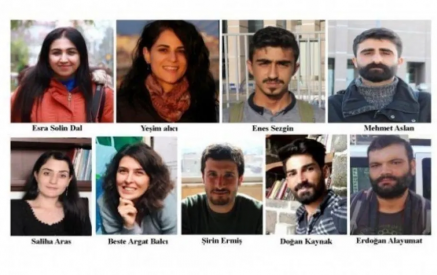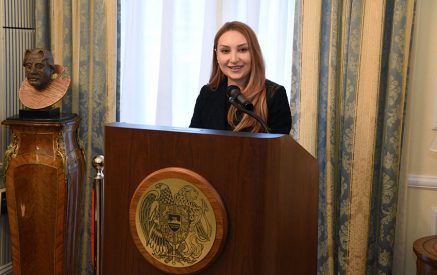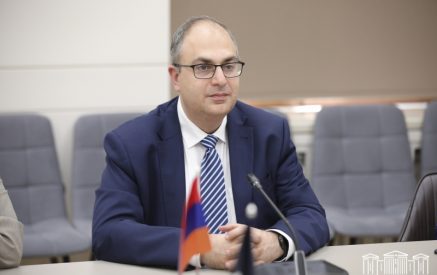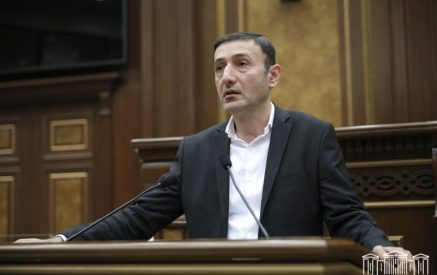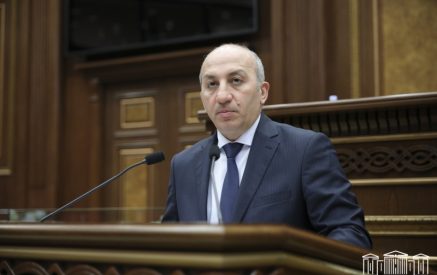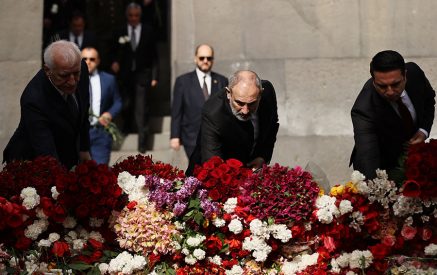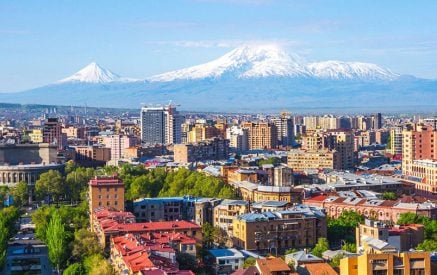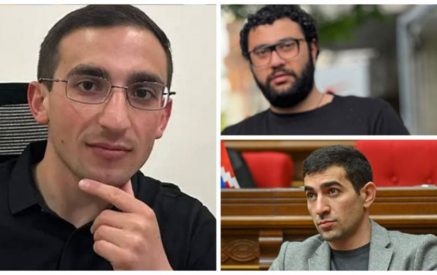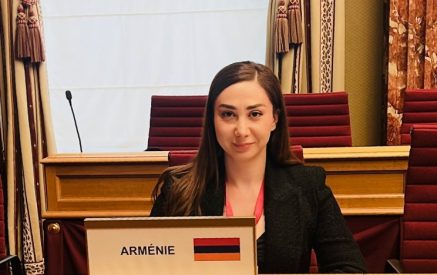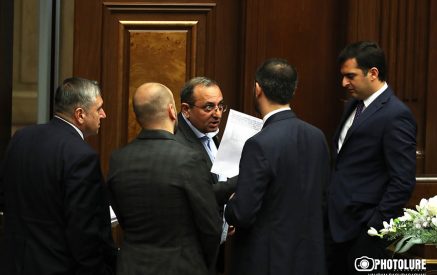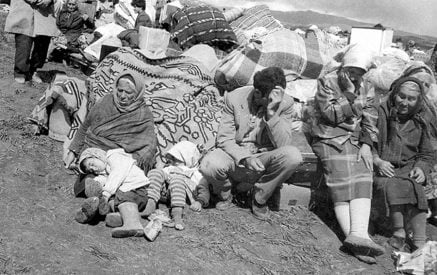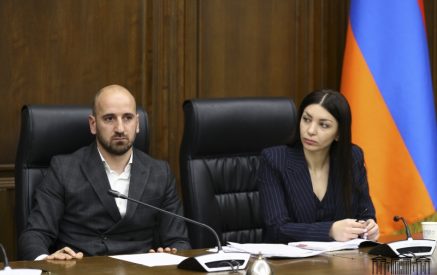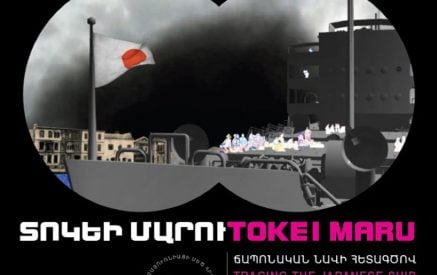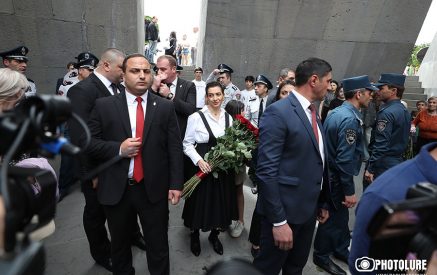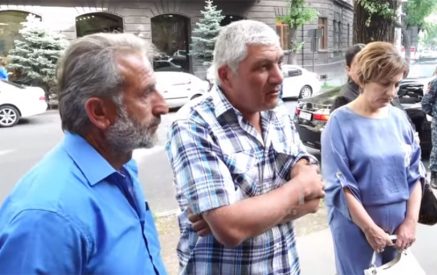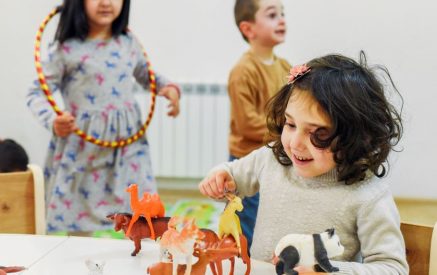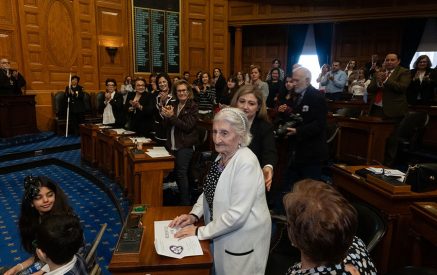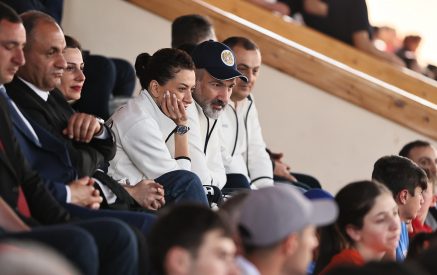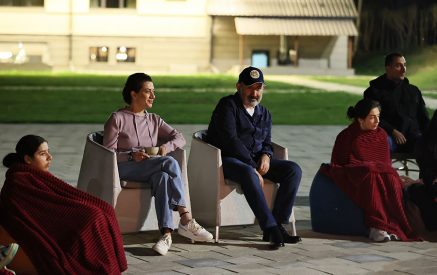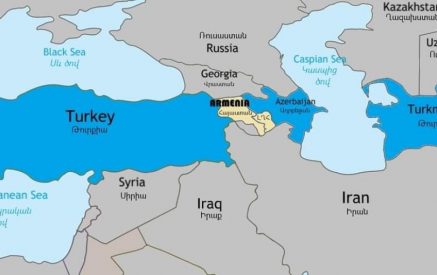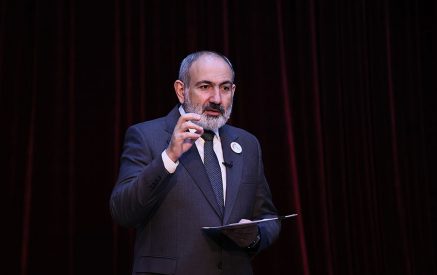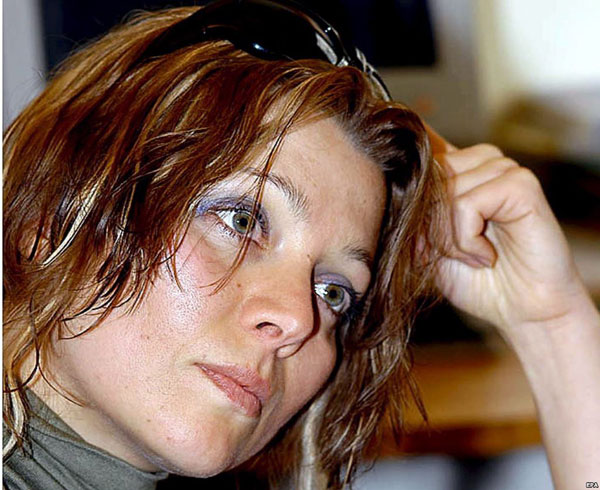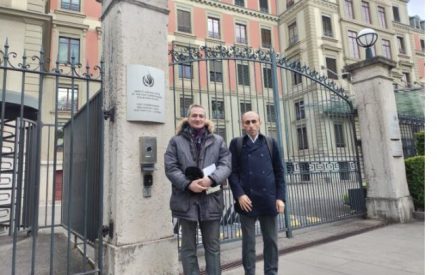Or, Elif Şafak’s “The Bastard of Istanbul”
In the series of “Banned books”, “Antares” publishing has also published Elif Şafak’s “The Bastard of Istanbul”. This novel made the author appear before the court in 2006, she was charged under Article 301 for insulting the Turks. Şafak is still the most read writers in Turkey.
Some people think that the purpose of touching the topic of genocide by the Turkish writer is to obtain a scandalous image and international recognition. On the other hand, you wonder how a writer of Turkish origin can enter “into the skin” of the nations, whom her grandparents were not able to physically and genetically execrate. Indeed, one needs to be courageous to raise internal problems of Turkish society, and also to emphasize that the topic of the Armenian Genocide is the Turks’ psychological complex.
“The Bastard of Istanbul” novel is written in colorful language, subtle humor, gibes here and there. It has been successfully translated from Turkish by Arpi Atabekyan and edited by Nerses Atabekyan.
It “streams” to the east from the book, with wisdom, with everything: “Whatever falls down from the sky, should never be cursed. Including the rain … Whatever falls down over your head from above, you should receive.” In the novel, the Armenians are presented in a positive light.
Şafak referred to all kinds of tricks while presenting the theme of genocide: she created the Armenians registered in the social networks under nicknames in coloring (Anti-ghavurma, Lady Peacock, and so on). 19-year-old Armanush Chakmakchyan seeking her grandmother’s house and the traces of her family in Istanbul is registered as Madam Expelled Soul in honor of her much beloved Zapel Yesayan, who “was the only woman writer in the list of the Armenian intellectuals of Saknjai exiled by the Ottoman government in 1915”.
In the social networks, the members of the Armenian group “Anush’s tree” were interested in the history and philosophy. The author believes: “Nothing could bring people closer so much as the common enemy…” For example, once the subject of their discussion were janissaries.
“Those who believe in justice of the Ottoman government, do not know the paradox of janissaries. Janissaries were the children of Christians who at the expense of disregarding own nation and forgetting the past, aiming to reach the top of possible stairs, changed their religion by the Ottoman state,”- let’s confess that it is a courageous confession. Often, many of the writers even cannot raise our internal issues so loud.
Şafak often surprises Armenians with her ability to learn. There is a humorous test in her novel with the theme “Are you enough Armenian”, in which there are similar questions typical to Armenians “were you getting the Armenian alphabet on your birthday until six or seven years old,” “do you have at least one picture of Ararat at your home or in the office”, “does your body tremble under the sound of the duduk, and aren’t you still surprised at how can the pipe made of apricot tree bear so much sadness in it…”
One of the heroes of “social networks” recommends the heroine of the novel, Armanush, not to go to Turkey, saying,- “Even educated Turks either are nationalists or ignorant … You think they are going to say, we apologize for massacring you, for deportation, for exiling and then denying everything… Why do you want to get pain in your head?” The reaction of Turkish woman Asia is also interesting when she learned that Armanush is an Armenian by origin, “Tell me, please, is it true that “System of a Down” hates us?”
The author uses every opportunity to refer again to the topic of genocide, the list of Armenian intellectuals sentenced to death, Komitas’s madness…
The author, Turkish by origin, draw an original conclusion from the mouth of the heroes: “Armenians and Turks live in different time zones. The time for Armenians is a period of the past to re-birth in the present, of the present to give birth to the future … The time for Turks looks like a line divided, cut in many places, the past ends at a specific point, now it started from zero. There is nothing else but segmentation between the past and present of the Turks…”
It is not accidental that 19-year-old Turkish Asia in the novel is surprised at her peer Armanush on meeting a young with the memory of an adult. She is frankly surprised when she is expected to apologize for what, in her opinion, she has nothing to do. But the Armenian heroes of Şafak have also the answer for it: “Your government denies the history and you create that government. This means that you are accomplice, you maintain a policy of denial together.”
Maybe some Armenians with nationalistic elements consider the novel of Elif Şafak a failure, belated remorse or something else, in any case, the author deserves the greatest respect. It’s not easy to get the label of a traitor and offender of the national identity by your country to speaking “open” about the pain of others.
In one of the interviews with ‘Euronews’ Şafak said that the literature should not be on anyone’s side, it needs to become a specific bridge, to be universal and such a space of human, where no visas or passports would be required to enter.
Gohar Hakobyan




